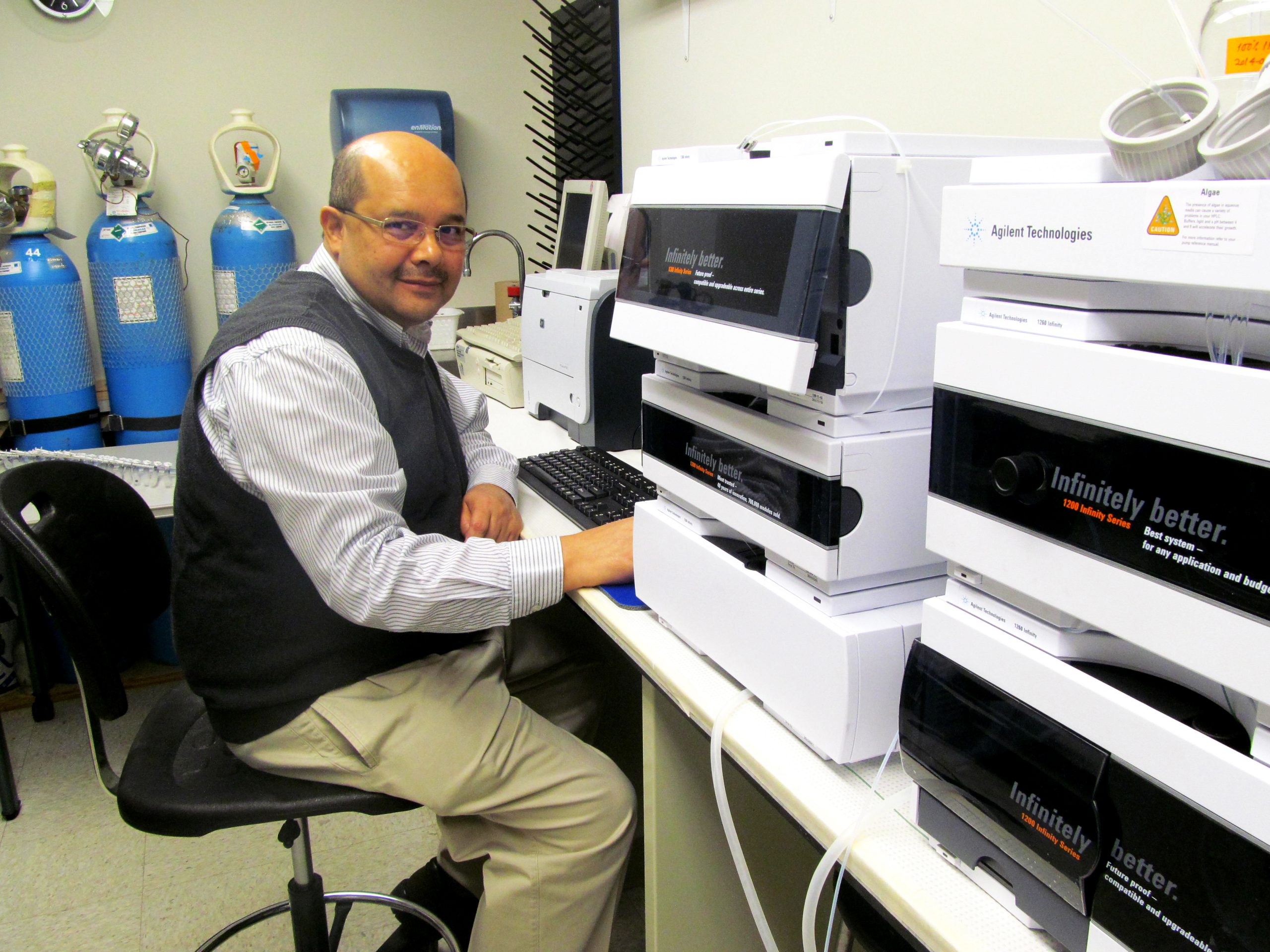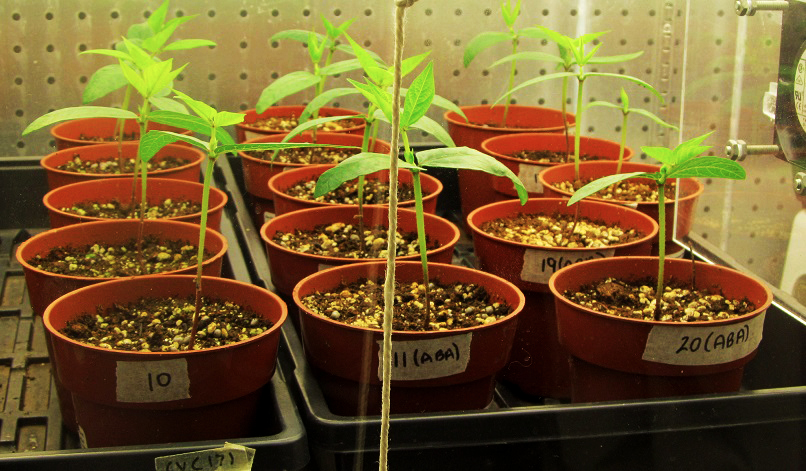From agriculture to horticulture, Dr. Qaderi’s work stands to influence several sectors
Dr. Qaderi is the recipient of a new grant from the Canada Foundation for Innovation’s John R. Evans Leaders Fund, announced January 20, 2015. Read the CFI news release.
 In his physiological plant ecology lab on the main floor of Evaristus Hall at Mount Saint Vincent University, Dr. Mirwais Qaderi, Assistant Professor of Biology, is making big discoveries using small plants.
In his physiological plant ecology lab on the main floor of Evaristus Hall at Mount Saint Vincent University, Dr. Mirwais Qaderi, Assistant Professor of Biology, is making big discoveries using small plants.
With seeds germinating in some chambers and plants in the midst of certain experiments in others, Dr. Qaderi’s lab is at the heart of important studies on the effects of climate change on plants.
“In the lab, we’re able to create controlled environments, designing experiments to include multiple components of climate change, like temperature, carbon dioxide, drought, and UVB radiation,” said Dr. Qaderi. “Working with students, we’ve now published several papers on the combined effects of climate change factors on a variety of plants, from weeds to crop plants like canola.” In other words, from horticulture to agriculture and even wildlife biology, Dr. Qaderi’s work stands to influence several sectors in the fight against the harmful effects of climate change.
The physiological plant ecology lab is equipped with special chambers that enable Dr. Qaderi to finely control a variety of environmental factors. As well, a powerful micro scope enables the detailed dissection of plant components. Additional analytical equipment measures plant emissions and hormones.
scope enables the detailed dissection of plant components. Additional analytical equipment measures plant emissions and hormones.
Dr. Qaderi joined the Mount from the University of Calgary in 2010. He holds an MSc and a PhD in plant science from Western University, and an MSc in plant biology from Kabul University.
Dr. Qaderi’s lab is supported by the Canada Foundation for Innovation, the Nova Scotia Research and Innovation Trust, and Mount Saint Vincent University.